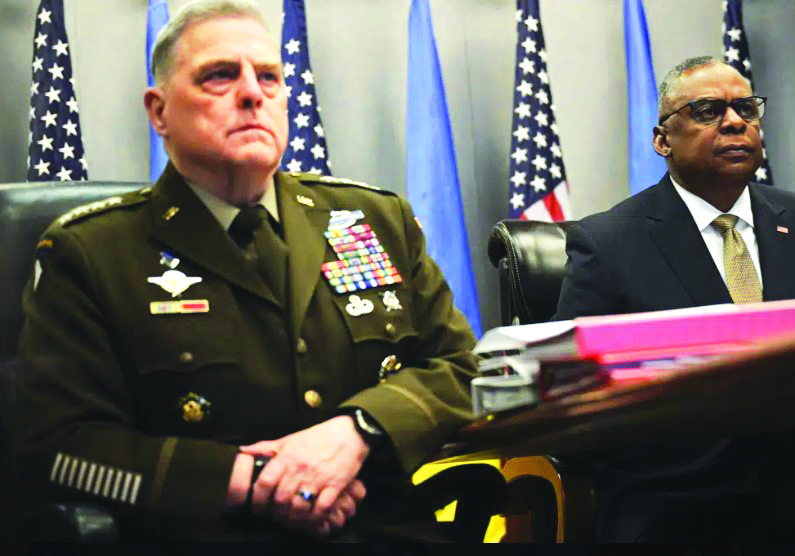Russia downplays jet’s encounter with US drone
Wants to recover debris from Black Sea

Russia does not rule out “constructive dialogue” with the United States even though relations between Moscow and Washington are in a “deplorable state,” the Kremlin’s spokesman said a day after the US reported that a Russian fighter jet struck the propeller of a US surveillance drone over the Black Sea.
US officials accused Russia of attempting to intercept the unmanned aerial vehicle, which American forces brought down. Asked Wednesday if the incident could inflame tensions with Washington, Kremlin spokesman Dmitry Peskov repeated the Russian Defense Ministry’s statement that Russian jets didn’t use their weapons or impact the U.S. drone.
Peskov described US-Russia relations as being at their lowest point but added that “Russia has never rejected a constructive dialogue, and it’s not rejecting it now.”
U.S. National Security Council spokesperson John Kirby said the drone was flying in international airspace and over international waters when the encounter with the Russian fighter took place Tuesday. He stressed that the drone’s presence over the Black Sea was not an uncommon occurrence.
“It is also not uncommon for the Russians to try to intercept them,” Kirby said, adding that such an encounter “does increase the risk of miscalculations, misunderstandings.”
The MQ-9 Reaper drone has not yet been recovered and it was unclear whether it would be, he said.
“The last thing that we want, certainly the last thing that anybody should want, is for this war in Ukraine to escalate to become something between the United States and Russia, to have this actually ... expand beyond that,” Kirby said, speaking Wednesday on CNN. At the Pentagon, U.S. Defense Secretary Lloyd Austin said the intercept by the Russian jet was part of a “pattern of aggressive, risky and unsafe actions by Russian pilots in international airspace.” He said Russia must operate its aircraft in a safe manner. “Make no mistake, the United States will continue to fly and to operate wherever international law allows,” Austin said in opening remarks before a virtual meeting of a U.S.-led effort to coordinate Western military support for Ukraine.
While encounters between Russian and NATO aircraft are not unusual before the invasion of Ukraine, NATO plans were involved in an annual average of 400 intercepts with Russian plans the war has heightened the significance and potential hazards of such incidents.
The secretary of Ukraine’s National Security and Defense Council, Oleksiy Danilov, tweeted Wednesday that the drone incident was “a signal from (Russian President Vladimir) Putin that he is ready to expand the conflict zone, with drawing other parties
in.”



